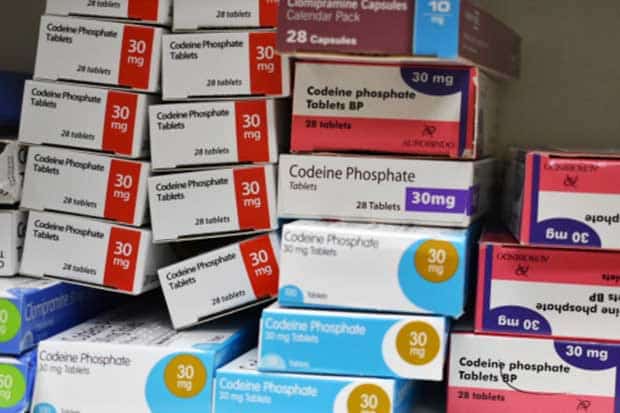Codeine Addiction Treatment
Codeine, is typically found in a tablet, pill or liquid form. It is known as a prescription pain-medication. As with most prescription drugs, there are benefits of codeine to manage pain effectively, but there are extreme risks for abuse and addiction being it is in the opioid family. As long as Codeine is prescribed for a short time period, it is typically safe. For those who are abusing the drug at large doses and too consistently, there is a great risk for addiction issues. This particular drug is considered part of the opioid epidemic in the United States. As America is faced with an opioid crisis, codeine is most certainly a part of those statistics. People are dying daily from opiate addictions.
What Is Codeine?
Codeine is technically considered an opiate. They are in the opioid family but specifically opiates are naturally derived from the poppy plant. Opioids can be a combination of semi-synthetic or fully synthetic substances that provide people with the same effects as opiates.This prescription medication is used for suppressing coughs and managing pain. This drug was originally sold over the counter as a cough medication. Now codeine is required by prescription, but the laws vary from state to state.
There are many codeine nicknames that people should be aware of when determining if a friend or family member suffers from codeine addiction. Some of the most common street names for the drug include:
Purple drank
Sizzurp
Drank
Lean
Cody
Schoolboy
Loads
Pancakes
Syrup
Codeine Description
Codeine looks like and is taken in liquid, tablet, or as a capsule and can be abused by both swallowing or injecting. People with a prescription for codeine, or a medication that includes codeine, should take the medicine as directed.
Low doses of the drug are available for over-the-counter purchase in some parts of the United States. The opioid is an ingredient in some variations of Tylenol and Fioricet. Codeine also is a major ingredient in various cough syrups, including:
Robitussin
Maxiflu CD
Maxiflu CDX
Since codeine can be attained over the counter or through a doctor’s prescription, some people might believe that it’s a harmless drug and can be taken regularly with no consequences. This is not true, as there are many dangers of codeine and many people suffer from addiction to codeine cough syrup and other forms of the drug.
Codeine Addiction
Like any drug, the addiction level of the drug varies per individual. Someone who is taking the drug to treat cough, pain, and a cold in lower doses and only as prescribed probably won’t become addicted to codeine. However, the person who is consistently taking large doses of codeine the risk for addiction is much greater.
Like any opiate or opioid based drug, codeine changes the way the brain and nervous system respond to pain and coughing. Codeine converts back to morphine when it enters a person’s brain and binds to the opioid receptors. Like most opiate addictions, the feel-good effects of the drug is what gets users hooked. The euphoric feeling that opiate based-drugs bring the user makes many unable to stop.
Like most opioid based drugs, consistent use turns to addiction very easily. Tolerance is created after prolonged drug use, and then addiction is formed. It is also a commonly used drug that many people in the US use in order to avoid opioid withdrawal symptoms from more potent and deadly opioids such as heroin or oxys. As soon as a withdrawal sign is seen, it is important to seek treatment immediately, because this means a physical addiction has been formed.

The following are opioid withdrawal symptoms:
Dizziness
Depression
Nausea and vomiting
Sleeping irregularities
Lightheartedness
Breathing trouble
Sedation
Stomach aches
Irregular heart rate
Muscle weakness and pain
Early in codeine withdrawal, people might experience symptoms as the body readjusts to no longer depending on the drug. Some symptoms can occur within hours after the final dose, and these effects include:
Yawning
High Irritability
Mood swings
Body aches
Problems sleeping
Watery eyes
Sweating
Runny nose
The Best Treatment Codeine Addiction Program
Some withdrawal symptoms could last up to a month, but by this time in the rehab process, people know their level of codeine addiction and should have a treatment plan in place. Codeine addiction treatment varies in length of time. In many ways, the length of treatment is dependent on the severity of the person’s addiction. After the initial detox process the next levels of care would be a partial hospitalization or an intensive outpatient treatment program for codeine addiction.
The PHP and IOP levels of care provided by The Best Treatment is important because in order to prevent relapse it is suggested a 60-90 day rehabilitation process is completed. We offer an individualized treatment program because it is essential to begin treating the root causes of drug use and addiction, so everyone’s treatment care program is unique.
Our goal here at The Best Treatment Center is to support our guests during their recovery journey and always encourage their continuous growth.

